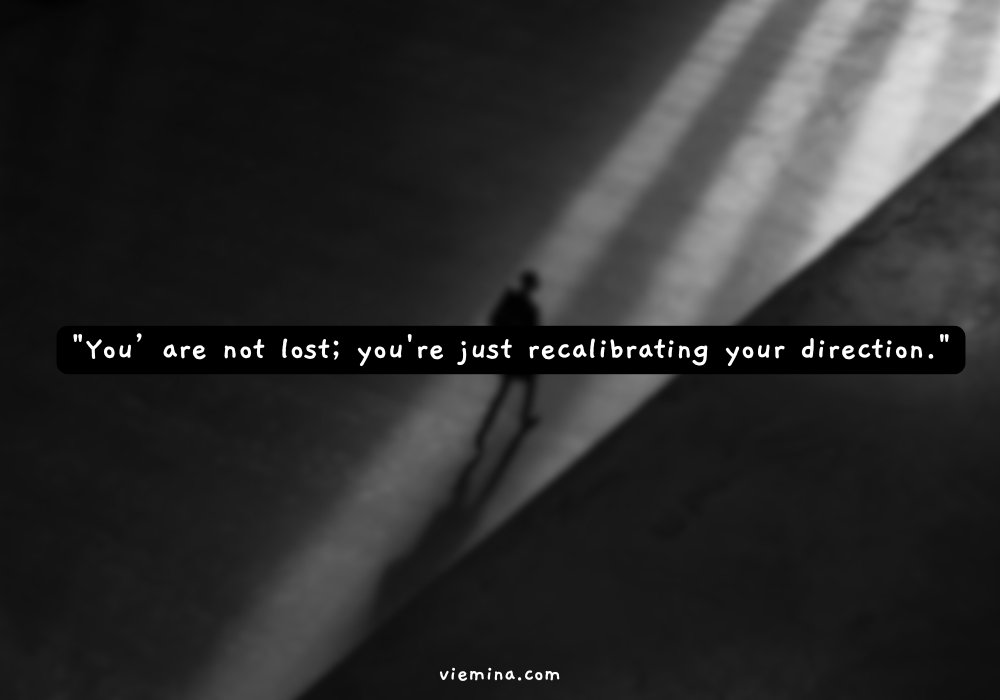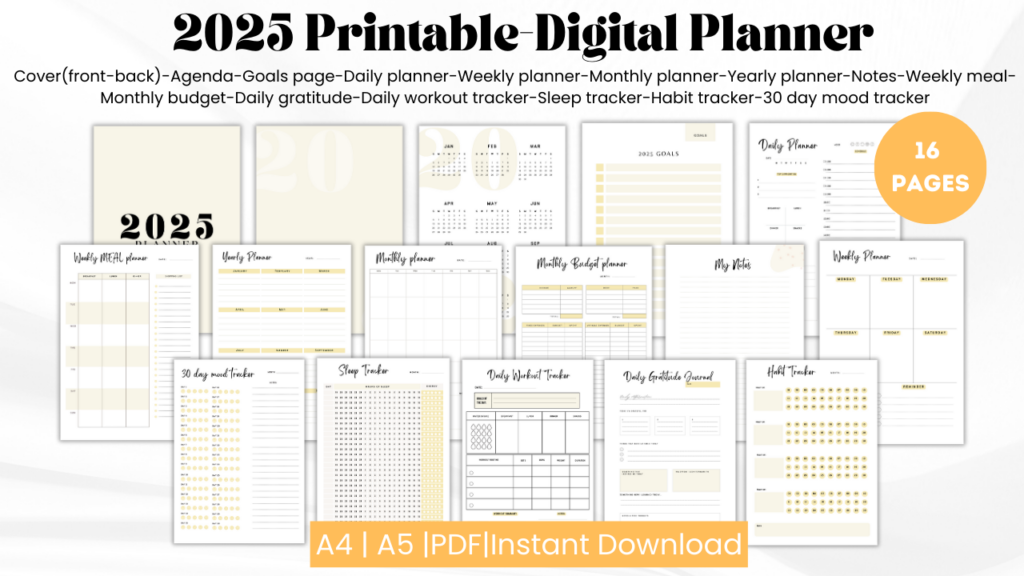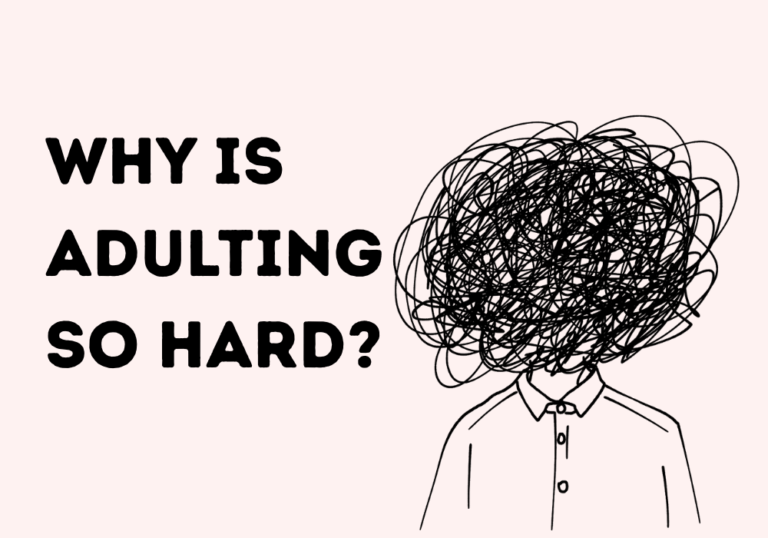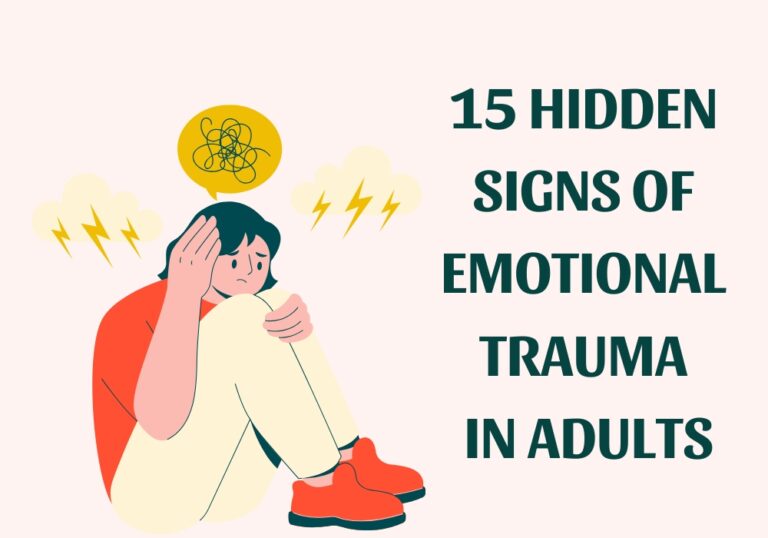Feeling lost in life is something almost everyone goes through at some point. It can feel confusing like being stuck in a maze or walking through a fog with no clear path. But this feeling isn’t all bad—it’s a sign to pause, reflect, and figure out what truly matters to you. By understanding why you feel lost in life and taking small, practical steps, you can start to find direction and purpose again. This time of uncertainty can actually be an opportunity to grow and realign with what makes you happy and fulfilled.
Why Do We Feel Lost?

Feeling lost often comes from a disconnect between where you are and where you want to be. It can feel like losing your sense of purpose or direction, leaving you unmotivated or unsure about your next steps. This feeling might be triggered by major life changes, unmet expectations, unresolved emotions, or even comparing yourself to others. It’s a sign that something in your life isn’t aligning with your values or goals. Recognizing these feelings and understanding their root cause is the first step toward finding clarity and moving forward.
Common Reasons for Feeling Lost:
1-Lack of Direction or Purpose:
Feeling lost often happens when one lacks clear goals or a sense of purpose. Without direction, it’s easy to feel like one is just going through the motions without true fulfillment. This can happen when outside pressures take over and pull one away from what one truly cares about.
Related: Discover Your True Purpose in Life with 8 Essential Tips
2-Emotional Challenges and Self-Doubt:
Feeling stuck can happen when you have low self-esteem, unresolved trauma, or keep thinking negatively about yourself. If you’re always criticizing yourself, believing you can make changes is hard, leaving you feeling lost and unsure of what to do next.
3-Comparison with Others:
Always comparing yourself to others can make you feel inadequate, insecure, and unsure about your own life.
4-Lack of Self-Discovery:
Not knowing who you are or what you want can make you feel empty and confused, leaving you unsure about yourself and your path.
5-Setbacks:
Major setbacks, like losing a job, shutting down a business, or being diagnosed with a health condition, can really throw you off track. For example, if you lose your job unexpectedly, you might feel uncertain about your future or question your abilities. Similarly, if your business fails, it can shake your confidence and leave you feeling lost about what comes next. These challenges can cause grief and make it hard to move forward.
6-Grieving the Loss of Someone Special:
When you lose someone you love or an important relationship ends, you can feel lost, overwhelmed, sad, and unsure of what to do next. For instance, losing a close friend or family member might make you feel like a piece of you is gone. You may also struggle with how to carry on or handle things without them.
Related: How to Get Over a Breakup: 15 Steps to Heal and Move On
Related: How Long Does It Take to Get Over a Breakup
Related: Exploring the 5 Stages of Grief Journey
7-The Impact of Routine Disruptions:
A steady routine provides stability, helping you feel calm, confident, and in control. When your routine is disrupted, it can leave you feeling lost and unsure of how to get back on track. For example, sudden changes in your daily schedule or unexpected events can make it hard to balance and feel in control again.
“Unlock your most organized year yet with the 2025 Ultimate Life Planner Pro!”

8-Fear of Failure:
The fear of failing can stop us from taking chances or following our passions, leaving us feeling stuck and unsatisfied. But remember, failure is a natural part of growing and learning—it’s how we improve and move forward.
Related: Why Do I Feel Like a Failure? 20 Causes That Might Shock You
9-Burnout:
Burnout happens when we push ourselves too hard and forget to care for ourselves. It can leave us feeling tired, drained, and overwhelmed—both physically and mentally.
Related: How to Avoid Burnout ?12 Ways to Get From Burnout to Balance
10-Lack of Support System:
Not having a strong support system can make you feel even more lost. Having close friends or family around can help you feel grounded and supported. Without that, it’s easy to feel lonely, isolated, and unsure of your path. A solid support network can make a big difference in finding your way again.
What Do You Do When You Feel Lost In Life?
It’s completely normal to feel lost from time to time, and thinking “I feel lost” can bring on feelings of anxiety and fear. But, it’s also a chance to discover more about yourself and find a fresh path. The best part? There’s always a way forward and plenty of options to explore.
Here are some steps you can take when you are feeling lost in life or unsure of your direction:
1-Accept Your Feelings:
Pushing away your emotions won’t help. Start by accepting that it’s okay to feel lost—it’s something many people go through, and it doesn’t mean you’ve failed. Permit yourself to feel what you’re feeling without judgment.
2-Pause and Reflect on Your Needs:
When life feels overwhelming, take a step back to understand what’s really going on. Ask yourself, What’s causing me to feel this way? When did it start? Reflect on your values, passions, and goals to reconnect with what truly matters. Journaling can help untangle your emotions and bring clarity. At the same time, think about your needs—are your choices or environment meeting them? Identifying what’s missing and aligning with your priorities is like recalibrating your GPS “You need to know where you are before figuring out where to go.”
3-Focus on Your Strengths:
When you’re feeling lost, identifying your strengths can help you find clarity and direction. Reflect on your abilities and talents, both at work and in your personal life. Ask yourself questions like:
- What achievements am I most proud of?
- In what situations do I feel the most confident and capable?
- Which activities or tasks bring me the most joy and satisfaction?
- What skills or qualities make me stand out in a team or group setting?
Think about all your strengths, from technical skills to personal qualities like empathy or leadership. Maybe you’re amazing at brainstorming creative ideas or are the person everyone turns to for support. Recognizing what you’re good at can help you build confidence and map out your next steps.
Also, consider areas where you’d like to improve. Understanding these can help you focus on personal growth and seize new opportunities.
Related: 10 Habits of Highly Creative People
4-Set Small, Achievable Goals:

When life feels overwhelming, don’t focus on the big picture all at once. Start by setting small, manageable goals that you can tackle step by step. Think of it like assembling furniture or climbing a staircase—each task completed is a step closer to your destination. Begin by defining what you want, whether it’s learning a new skill, advancing at work, or simply feeling more organized. Break these objectives into smaller tasks and prioritize them based on what needs immediate attention. Celebrate every small win, as each success builds momentum and boosts your confidence. By taking things one step at a time, you’ll find clarity, regain motivation, and steer your life in the direction you want to go.
Related: How to Set Goals and Achieve Them? 10 Tips for Success
5-Start a New Routine:
Switching up your daily habits can bring a fresh sense of purpose and energy to your life. Try creating a new morning routine, like stretching, journaling, or enjoying a quiet cup of coffee. In the evening, establish a ritual like reading, meditating, or reflecting on your day. These small changes can bring novelty, structure, and a renewed focus to your day.
Related: 13 Tips To Create an Effective Daily Routine
Related: How to Have a Good Morning Routine: 13 Powerful Habits
Related: How To Create a Productive Evening Routine: 12 Steps
6-Tray Digital Detoxing:
Social media can sometimes make feeling lost in life even harder by amplifying feelings of inadequacy. Step away from the endless scrolling and spend a moment focusing on yourself and your well-being. Limit your screen time by diving into offline activities like reading, exploring hobbies, or spending quality time with loved ones. A digital detox can help you feel more grounded and present.
Related: 8 Tips For Healthy Social Media Habits
7-Start Journaling for Clarity:

Writing down your thoughts is like having a heart-to-heart with yourself. Just asking “How am I feeling today?” can help you figure out your emotions and spot any patterns in your life. Journaling not only provides a safe space to explore your feelings but also helps you prioritize concerns and fears. Over time, it can reveal valuable insights into what might be contributing to your feeling lost in life and guide you toward clarity and direction.
Related: 10 Powerful Tips to start Journaling and make it a Habit
Related: How To Improve Mental Clarity? 16 Ways to Achieve It
8-See Change as a Chance to Grow:
Feeling lost in life can be tough, but it’s also an opportunity to grow and improve. Think about areas of your life you want to change and steps you can take to make them better. Reflect on past changes that brought positive results and try to view new challenges as chances to learn and grow. Life can be unpredictable, but staying flexible and open to new experiences can lead to happiness and fulfillment—even in the hardest times.
9-Step Out and Try Something New:
Stepping out of your comfort zone can do wonders when you’re feeling lost in life. Trying new activities—like picking up a hobby, volunteering, or exploring new places—can reignite your curiosity and excitement. Creative outlets like painting, writing, or tackling DIY projects can also be deeply rewarding, offering a sense of accomplishment and a way to express yourself.
Beyond the fun, trying new things has real benefits for your brain. It releases dopamine, the “feel-good” hormone, boosting your mood and well-being. It also enhances your brain’s neuroplasticity—the ability to adapt and grow—improving cognitive function over time. So, how about stepping out of your comfort zone and trying something different? Set aside time to dive in, and let the experience bring fresh perspectives and positivity into your life.
Related: Stepping Out of Your Comfort Zone: 20 Unique Tips for Growth
Related: Why Hobbies Are Important? 12 Benefits
10-Build Meaningful Connections:

Finding support from others can make a big difference when you’re feeling lost in life. Start by reconnecting with old friends—they know you well and can offer comfort or valuable insights. If you’re seeking new connections, try joining a group or club that matches your interests, like a fitness class, a book club, or a hobby meetup. Being around people who share your passions can be uplifting and remind you that you’re not alone.
Don’t shy away from leaning on trusted friends or family members. They’re like a cozy blanket on a cold day—reassuring, supportive, and always ready to help. Opening up about your feelings can provide fresh perspectives and even moments of much-needed laughter.
Related: How To Maintain Lasting and Strong Friendships: 10 Tips
11-Finding Purpose and Meaning in Daily Life:
Sometimes, life can feel like you’re running in circles without getting anywhere. To break free, take a moment to reflect on what brings meaning to your days. Maybe it’s making someone’s day brighter with a smile, learning something new, or mastering the art of brewing the perfect cup of coffee. Purpose doesn’t always come from grand gestures—it’s often found in the small, everyday joys. Embracing these little moments can help guide you through even the toughest times.
12-Prioritizing Rest:

In today’s busy world, we often forget to take time to rest and relax. But taking time to recharge is essential—you can’t pour from an empty cup! Whether it’s treating yourself to a bubble bath, stretching out with yoga, or curling up with a favorite book, self-care acts as a much-needed reset for your mind and body. Remember, rest isn’t a luxury; it’s a necessity to keep you at your best.
“Ready to take control of your well-being and embrace self-care like never before? Grab your Self-Care Planner today and start building a life that prioritizes you! 👉 Click here to get yours now!“
Related: 9 Types of Self Care Everyone Needs to Practice
13-Practice Mindfulness and Meditation:
Mindfulness and meditation can help you feel more grounded and focused. Simple practices like deep breathing or sitting quietly with your thoughts can reduce stress and anxiety. Taking just a few minutes a day to be present at the moment helps you clear your mind, improve focus, and find inner peace.
14-Take One Step at a Time:
Feeling lost in life doesn’t have to be overwhelming. Pause, take a deep breath, and remember that progress is made one step at a time. Be as kind to yourself as you would be to a friend facing a tough moment. Focus on small actions and improvements rather than striving for perfection. Be patient, take your time, and celebrate even the small victories along the way.
With reflection, steady effort, and support from those who care about you, you’ll gradually move toward clarity and confidence. Each small step gets you nearer to your goals.
15-Reach Out for Support:
If you feel lost or overwhelmed and are struggling to cope, consider seeking help from a mental health professional. They offer helpful advice, strategies, and tools to guide you through life’s challenges. Think of it as having a coach to guide you through difficult times and help you regain clarity and balance when you need it most.
Conclusion:
Feeling lost is a natural part of life that everyone experiences at some point. It’s a chance to stop, think, and grow. By understanding its root causes, taking small, actionable steps, and cultivating resilience, you can rediscover your path and live with intention. Remember, even the smallest step forward can lead to meaningful change. Start today—your future self will thank you.








